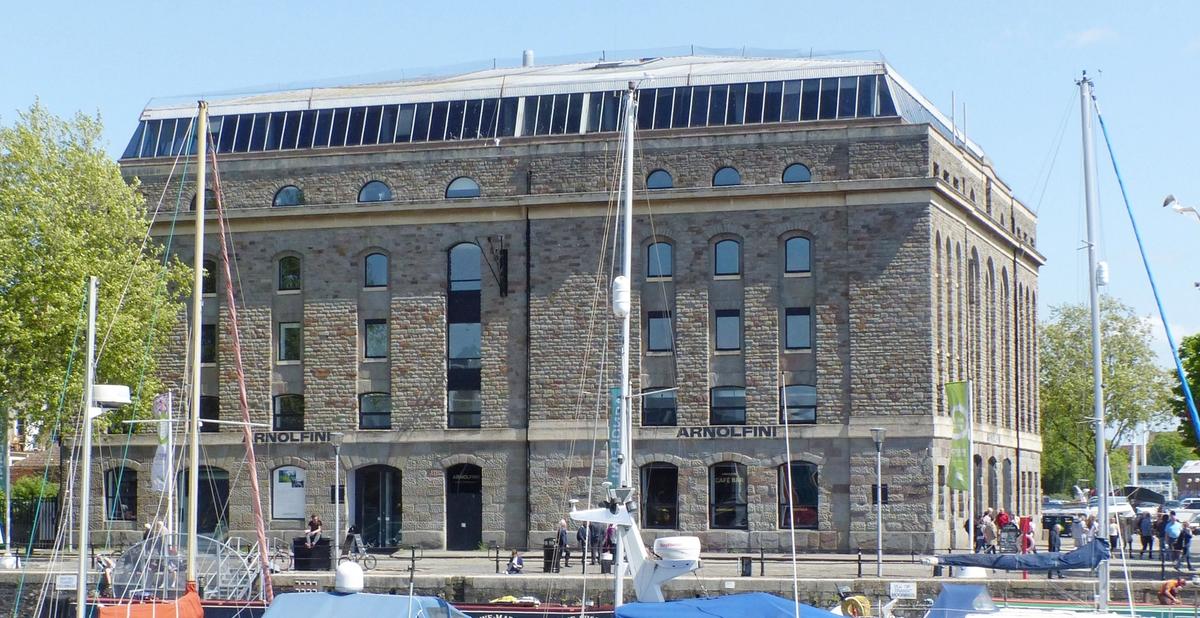As cultural institutions continue to grapple with how to respond to the Israel-Gaza war, the Arnolfini, a contemporary arts centre in Bristol, UK, is the latest institution facing criticism in an open letter over its decision to cancel two events as part of the city’s Palestine Film Festival.
In a statement, the Arnolfini said it withdrew its offer to host a screening and poetry evening because, as an arts charity, its ability to engage in what could be "construed as political activity" was restricted. A sit-in protest organised online by a body known as the Bristol Anarchist Federation is also due to take place at the gallery this evening.
The Bristol Palestine Film Festival, hosted across four venues from 2 to 10 December, presents itself as "the very best in contemporary Palestinian cinema, arts and culture".
The events cancelled at Arnolfini include a screening of Farha (2021), a coming-of-age film by the Jordanian-Palestinian writer Darin J. Sallam, which would have been followed by a panel discussion featuring the Palestinian writer and doctor Ghada Karmi.
The Arnolfini was also due to host a live poetry night headlined by the rapper and activist Lowkey. The film screening will now take place at the arts charity Watershed, while the department store Sparks will host the poetry event.
More than 1,860 people have signed the open letter, published on 20 November, which states that “these events were intended to explore the issue of increasing silencing and censorship of Palestinian and pro-Palestinian voices in the arts, featuring two artists—Darin Sallam and Lowkey who have faced censorship… due to their pro-Palestinian stance.”
The letter mentions an exhibition held at the Arnolfini in 2019, Still I Rise: Feminisms, Gender, Resistance, as an example of a previous event with “an overtly political theme”. The letter says: “Your press release remarked that the exhibition was ‘celebrating the city’s history as a hotbed of radical feminist and queer resistance’. It appears, then, that Arnolfini has been comfortable, until now, hosting political events with explicitly liberationist, decolonial, feminist and intersectional themes and narratives.”
The signatories subsequently requested that Arnolfini’s management “make public [its] reasons for withdrawing from these two events at such short notice”.
In a statement posted on 21 November, Arnolfini said it took the “difficult decision” to pull the events, adding that “hosting events which combine film, performance and discussion panels meant we could not be confident that the event would not stray into political activity”. The Arnolfini adds that it does not have the resources to “adequately risk assess [such] events”.
The government guidance covering what is deemed political activity for arts charities is complicated, the gallery adds, stressing that the activities that fall under this remit can change depending on wider events.
The cancellation of the recent events in Bristol has provoked strong responses on social media. The artist Luke Jerram posted on X (formerly Twitter): “Shocked and saddened Arnolfini can’t present this work.”
Another contributor, Lulu Nunn, highlighted that the Arnolfini cites concerns of being seen to engage in “political activity” yet last year hosted Architecture & War: Loss, Heritage & Hope, a discussion focused on how European cultural heritage sites have vanished in the wake of the war in Ukraine. The Arnolfini was contacted for further comment.


